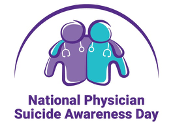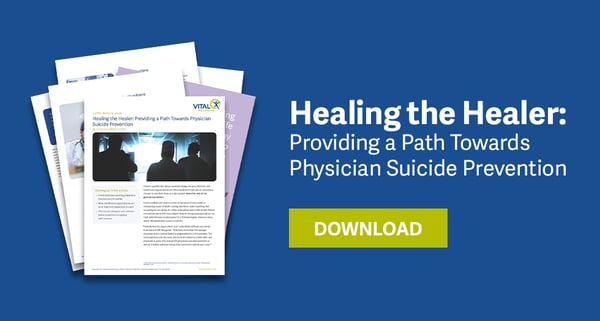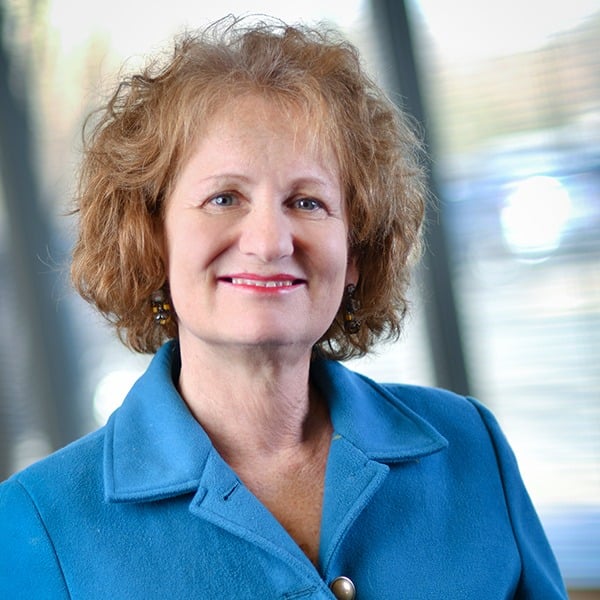
As you may know, September is National Suicide Prevention Month, and today (September 17th) is National Physician Suicide Awareness Day. I wanted to keep this topic top-of-mind, in particular because of how the COVID-19 pandemic has been piling on top of an already heavy burden for physicians.
You may have heard these stats before, but I wanted to share them again to reinforce how serious a subject this is:
- 300 to 400 doctors die by suicide each year, which misplaces almost one million patients.
- Physicians die by suicide at a rate that is more than double the general population.
- Female physicians are more likely to die by suicide than men with a rate of 2.27 to 1.41.
- Suicide is the #2 cause of death for residents—it’s the #1 cause of death for male residents and the #2 cause of death for female residents in the United States.
- The Association of American Medical Colleges (AAMC) projects that the United States will face a shortage of between 54,100 and 139,000 physicians by 2033.
- Additionally, nurses are 23% more likely to die by suicide than the population in general.
While this issue has started getting attention across the industry, it was the tragic death of Dr. Lorna Breen that brought it to the mainstream. Dr. Breen, a physician at New York’s Columbia University died by suicide in Charlottesville, Virginia, while staying with family, trying to recuperate from being exhausted by the on-the-job challenges and grieving the loss of life working during the height of the COVID pandemic.
This tragic news on top of the months of global media coverage around the pandemic was the tipping point to start the process to get support for physicians at a national level. Recently the Dr. Lorna Breen Health Care Provider Protection Act was announced with the aim to create behavioral health and well being training programs and a national campaign to encourage healthcare professionals to seek support and treatment. A foundation has also been created in her name, the Dr. Lorna Breen Heroes Foundation.
While this act will help, many in the industry agree that we also need a commitment to break down stigma, increase awareness, decrease the fear of consequences, recognize warning signs and learn to approach our colleagues who may be at risk. This requires a supportive culture, a specific program in place and the willingness of the physicians to engage. Yes, it is complicated issue with a lot of moving parts. However, I believe being proactive with options, giving physicians an opportunity to unload their mental baggage to an outsider before it’s too late, will help them improve themselves and reduce the number of physician suicide tragedies we see each year.
We Can Help
For more on physician suicide and measures which can head it off, see our article, “Healing the Healer: Providing a Path Towards Physician Suicide Prevention.”
If you’re thinking about suicide, are worried about a friend or loved one, or would like emotional support, the National Suicide Prevention Lifeline is available 24/7 across the United States. Call 800.273.TALK (8255) or CLICK HERE TO CHAT with a counselor.
Sources:
Center, C., Davis, M., Detre, T., Ford, D. E., Hansbrough, W., Hendin, H., Laszlo, J., Litts, D.A., Mann, J., Mansky, P.A., Michels, R., Miles, S.H., Proujansky, R., Reynolds, C.F. 3rd, Silverman, M. M. (2003). Confronting Depression and Suicide in Physicians. JAMA, 289(23), 3161. doi:10.1001/jama.289.23.3161
https://nurse.org/articles/suicide-rates-high-for-female-nurses/
Schernhammer, E. S., & Colditz, G. A. (2004). Suicide Rates Among Physicians: A Quantitative and Gender Assessment (Meta-Analysis). American Journal of Psychiatry AJP, 161(12), 2295-2302. doi:10.1176/appi.ajp.161.12.2295
CDC National Center for Injury Prevention and Control. (2015). 10 Leading Causes of Death by Age Group, United States - 2014 Retrieved from http://www.cdc.gov/injury/images/lc-charts/leading_causes_of_death_age_group_2014_1050w760h.gif
https://www.medscape.com/viewarticle/896257
https://suicidepreventionlifeline.org/promote-national-suicide-prevention-month/



